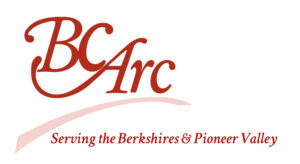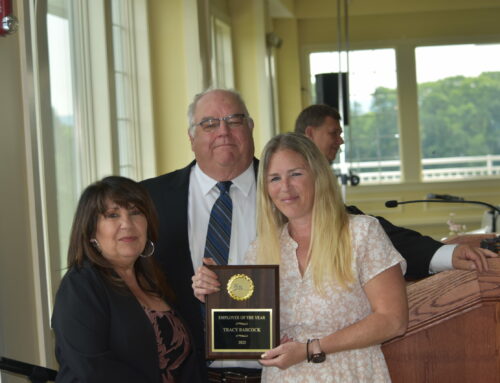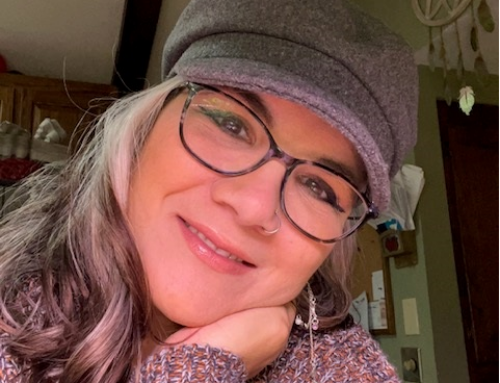In 1993, Congress passed a law designed to help charities and Medicaid agencies work together to help the disabled. As president & CEO of Berkshire County Arc, I am proud to say that our agency (among others in Massachusetts), rose to the challenge and created the Berkshire County Arc Special Needs Pooled Trust to enable us to serve the disabled in a new way. Over the past 15 years, our trust has helped our agency help countless vulnerable people with disabilities.
It is of great concern that, MassHealth, the Massachusetts Medicaid agency, is now considering a change to its regulations that would make the benefits of the agency’s pooled trust unavailable to persons ages 65 or older. We urge social service agencies across Massachusetts to come together and oppose this unwise, restrictive change in the law, which would only make it harder for us to help vulnerable, disabled elders.
The 1993 legislation amended the federal Medicaid statute to authorize the use of pooled special needs trusts. The law provided that a person with a permanent disability would be permitted to place his or her money in a pooled special needs trust, where it would not interfere with Medicaid eligibility, if, but only if, the trust met certain strict conditions.
The first condition is that the trust must be administered by a charity. The law therefore offered social-service charities – which are the institutions fighting on the front lines of assisting the disabled – a new tool to help their clients. The second is that the law limited the use of such trusts to persons with a permanent and total disability who are unable to work and support themselves. Only the truly needy can enjoy the legal benefits of a pooled trust.
To further protect the interests of the taxpayers who fund the Medicaid program, the third requirement is that after a trust beneficiary’s death, the Medicaid program would have the right to be repaid from any remaining trust balance for the funding paid out to the disabled beneficiary during his or her life. The charity administering the trust is also permitted to retain a portion of any remaining funds, for use towards its charitable purposes.
In short, in 1993 Congress enacted a carefully designed, precisely calibrated, “win-win-win” public-private partnership that invited charities all over the country to assist the disabled in new and creative ways through the use of a pooled special needs trust. For the two decades since then, MassHealth has permitted individuals age 65 and older to benefit from the use of a pooled special needs trust along with their younger fellow citizens. And yet, in late 2016, MassHealth issued a draft regulation that would withdraw the benefit of this law from persons on their 65th birthday.
The story of a client of the Berkshire County Arc illustrates how cruel and ill-advised such a change would be.
“Bonnie,” a 69-year-old woman diagnosed in 2002 with multiple sclerosis, lives in the community in a rented apartment. Because the MS greatly affects her memory, Bonnie was let go from her job and now relies upon MassHealth, her modest Social Security retirement income, the Massachusetts State Supplemental Program, Section 8 and food stamps. Just one of the medications for her illness costs more than $6,000 per month. Medicare pays most of the cost and extra help picks up the balance. Without MassHealth, Bonnie would find it almost impossible to pay the remaining costs for her medications. There is nothing left over at the end of the month for any extras or emergencies.
She was recently left $10,000 upon the death of her father. The account she was permitted to create in the Berkshire County Arc Special Needs Pooled Trust has helped her to avoid a catastrophic loss in MassHealth eligibility and have a small fund to draw on to meet personal needs not met by her modest benefits.
If MassHealth adopts the proposed change to its regulation, Bonnie, and others in a similar position, would lose access to MassHealth upon receipt of even a modest inheritance. The people who will be affected by the proposed regulatory change live with a range of disabilities, such as intellectual, mental health and physical. They reside in a variety of settings – independently, adult foster care, in group homes and in nursing homes. They are of modest means and seek to retain funds to supplement their benefits to pay for goods and services otherwise uncovered by MassHealth – health care and dental costs, companion services, transportation, clothing, household and personal items are just a few examples.
Fortunately, bills pending before the Massachusetts Legislature (Senate Bill 629 and House Bill 2074) would overrule the proposed change in the MassHealth regulation and preserve access to pooled trusts for those age 65 and over.
On behalf of the vulnerable disabled elders whom we serve, we urge all human service agencies in Massachusetts to support the proposed state legislation that would put a stop to MassHealth’s cruel and ill-advised proposal. It will help us help our clients live with the dignity they deserve.
Kenneth W. Singer is the President and CEO of Berkshire County Arc. David H. Jones, Esquire, is Counsel for Berkshire County Arc, Master Special Needs Pooled Trust.
References
Article featured in the June 2017 Edition of the Provider’s Council:
Senate and House Bills:
Pooled Trust Fact Sheet:






